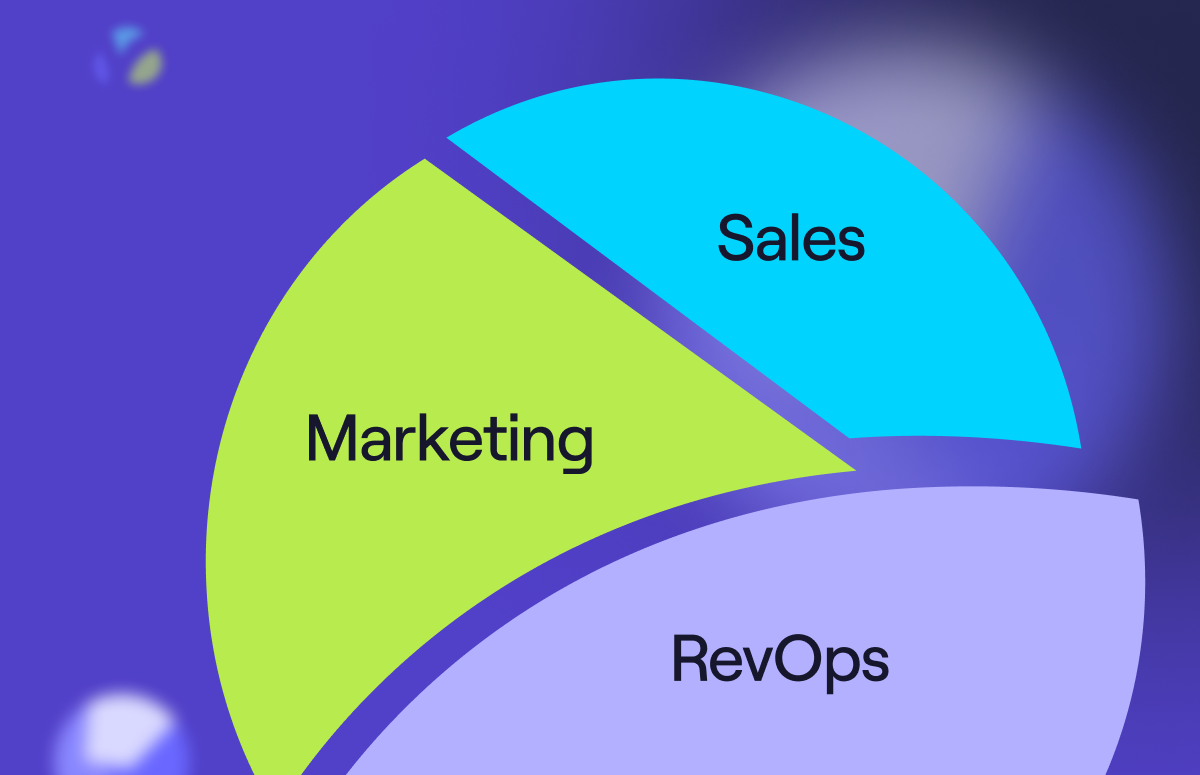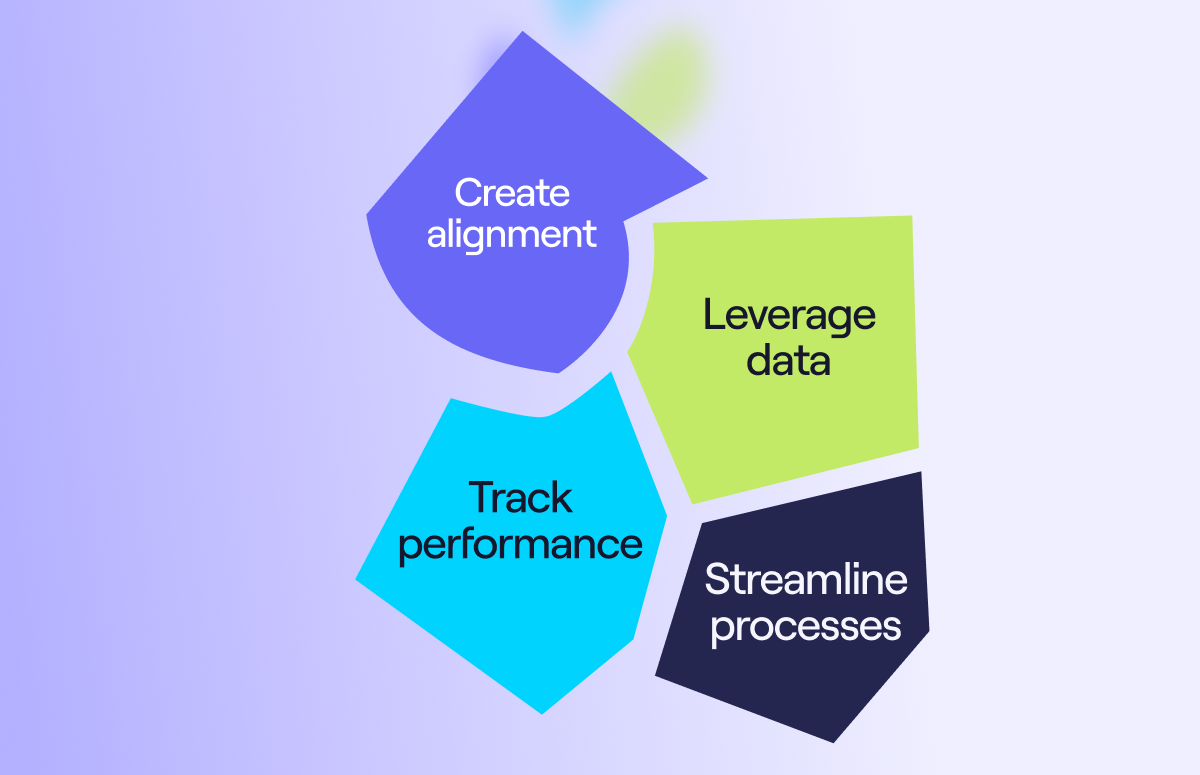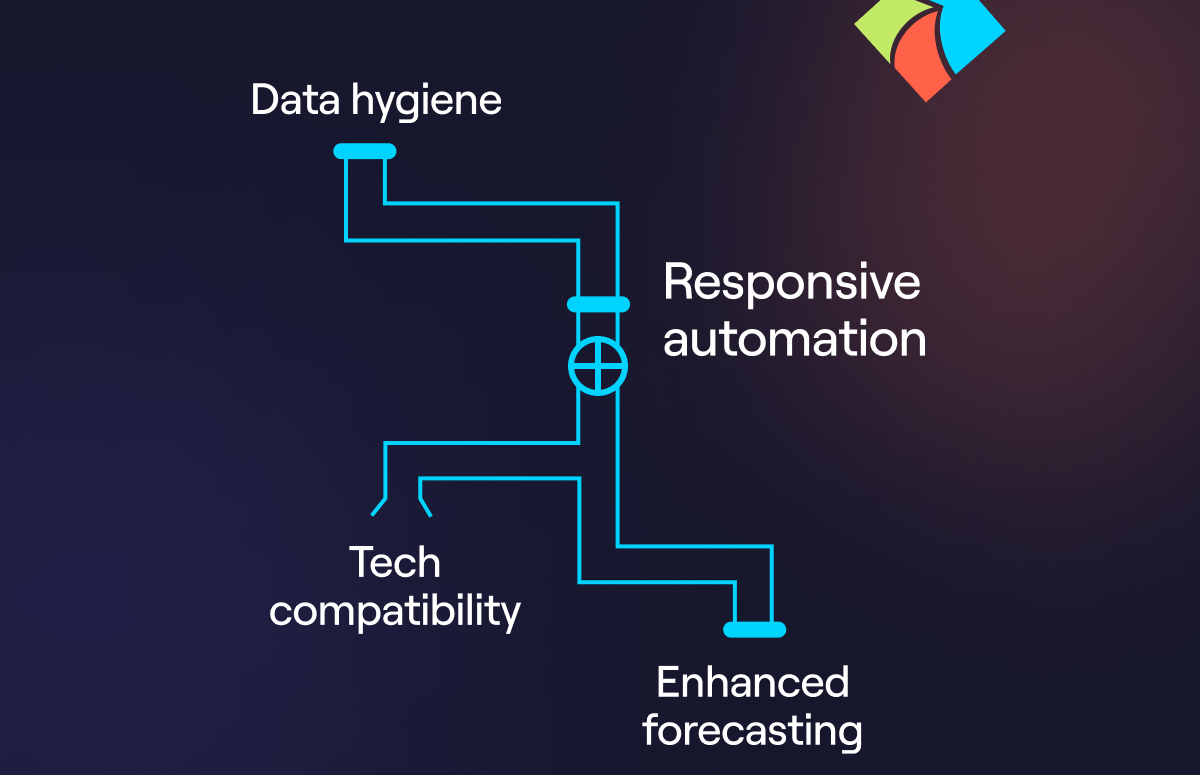8 Tips for Successful CRM Data Management
Good CRM data is the fuel for your revenue engine.
According to Salesforce research, 70% of the data in your CRM becomes inaccurate every year. This can lead to severe problems for you and your organisation.
Avoid your sales and marketing teams running on an empty tank - scroll to learn how you can successfully manage your CRM data 👇
Is CRM data management critical for B2B marketers?
Your CRM (Customer Relationship Management) data is a brilliant tool for enhancing marketing and sales strategies, making data-driven decisions, and improving business operations.
There are plenty of reasons to maintain high-quality data records. In the short term, it will save your business time, effort, and money. In the long term, as the B2B sector embraces a growing array of regulatory enforcement standards (such as the GDPR), storing accurate data is crucial.
(Image Source: Econsultancy)
Some of the top reasons listed in a recent Econsultancy study range from cost savings to enhancing customer satisfaction.
The bottom line is that CRM data management is crucial if B2B marketers want to perform well in a competitive business landscape.
How does poor CRM data management affect B2B success?
If you fail to maintain your CRM data and use poorly organised or integrated systems, you will miss opportunities to nurture leads effectively. This can lead to you losing happy customers and having problems with customer retention.
Storing accurate customer data puts your business in a better position to target leads and personalise the customer journey.
For instance, if your contact data is outdated, you might send email marketing campaigns or sales cadences to the wrong inboxes. You’ll lose customers at the first hurdle!
Here are just some of the ways poor CRM data management could affect your business:
Poor strategic decision-making
It’s B2B sales 101 - the more you know about your customers, the more effectively you can sell to them.
When your salespeople are talking to prospects and customers on the phone, they need the most up-to-date information at their fingertips. If the information is out-of-date, it’ll be harder for them to personalise the cold call and make a pitch.
This, in turn, hampers strategic planning and leads to flawed assumptions and decisions. For example:
Outdated CRM data might not include information about customers’ recent purchases, making it difficult to identify cross-selling or upselling opportunities.
And when that happens, you’ll likely lose out on satisfied customers and revenue.
Loss of deals
Out-of-date CRM data can also lead to your sales team missing opportunities to close deals.
If the data on your customers isn’t correct, it could mean that your SDRs won’t be able to find them at the time they need them, such as the contract renewal date.
Customer communication mistakes
Using inaccurate data to inform your customer interactions could lead to a disaster.
For example, if you misspell a client’s name, don’t be surprised if they lose interest in your services.
Poorly executed outreach campaigns
Your email marketing strategy plays a crucial role in securing customer conversions.
If your contact details aren’t up to date, you risk sending personalised outreach to the wrong inboxes. Worst still, without knowing what stage of the buyer journey your customer is at, you may shoot too early or too late with your emails.
Lower return on investment
Prepare for cost overruns if you have a poor data strategy!
If you offer a pricing structure to the wrong band of clients, it’s up to your business to cover those costs and take home a lower return.
Fixing takes time
Mistakes - such as sending poorly targeted emails or wrongly personalised messages - can take seconds to make but weeks to fix. With improved customer data organisation, however, you won’t have to spend time rectifying mistakes.
Incorrect CRM data could cost you clients, conversions and cash. If you think about the time it takes to fix just one mistake, cleaning up your data management seems like a no-brainer.
8 tips for managing your CRM data
Refining your business processes for data can’t happen overnight! It takes time to update and clean up old data and maintain your database’s health.
Luckily, there are plenty of methods and software tools to leverage when engaging in database management.
While it’s important to audit your database’s health first, once you’re ready to start organising your data, you can implement automatic backups and routine health checks. You can also harness data enrichment for deeper business insights.
(Image Source: Datamatics)
With this in mind, here’s how to fix your own CRM data management in eight easy steps 👇
1. Audit your current CRM data
Before embarking on a CRM data management strategy, first, identify where your key problems lie.
According to experts from SiriusDecisions, up to 25% of B2B CRM contact records have a critical error. Whether this is missing data or incorrect contact info, these errors often cause issues during the customer journey.
To audit your low-quality data effectively, look out for errors such as:
- Duplicate data.
- Inconsistent data.
- Missing data.
- Invalid data.
- Low-quality sets of customer data
Using tools like Zoho CRM and Insightly, you can automatically audit your CRM data for errors, streamlining the process and making it easier to clean up your database.
2. Clean up your data
Once you’ve established your database weaknesses, the next step is to clean up any errors that could impact future costs and your sales and marketing initiatives.
On average, a quarter of B2B marketer databases are unreliable; you must ensure that your CRM data doesn’t fall into the same category.
Start by updating client email addresses, phone numbers and mobile numbers. If a client has duplicate records in your system, work out which is the most recent and delete the other to avoid confusion.
Did you know you can use Cognism to enrich and refresh your CRM data? Take an interactive tour to see how it works 👇
3. Backup your data
While your chance of completely losing all data is low, 32% of small to medium businesses have experienced at least one cyber-attack in the last year.
With this in mind, your B2B business must have an up-to-date, well-guarded backup of all client data.
For businesses that collect data frequently from their website interactions, investing in a powerful web host could also streamline your data backup strategy.
Hostinger-managed cloud hosting plans automatically back up all data every 24 hours; this ensures that all client information remains safe in the event of a cyber breach or unexpected downtime.
When making your data backup plan, check that everyone on the team is briefed and knows what to do in a cyber emergency. To streamline the process further and ensure more frequent backups, why not introduce an automated tool such as AvePoint or Trujay?
4. Perform routine CRM database health checks
To maintain your database health, you must go one step further than just backing up your data. The overall health of your CRM database is what keeps your lead generation flowing smoothly.
Perform regular audits of your customer contact details and update your CRM information accordingly. This allows you to make better-informed decisions as you pursue business growth.
5. Automate as many tasks as possible
Data entry is a lengthy process, especially if you’re operating a CRM system for a medium to large-scale business.
Manual data entry is open to human error and fatigue, which could leave you with inaccurate data sets going forward.
To manage your CRM effectively, you should opt for a tool that:
- Streamlines data input and reduces entry errors.
- Automates backups and instantly highlights duplicate contact information.
Some examples of an automated CRM system include Salesforce, HubSpot, Zoho, FreshSales, CanvasBeta, ChatbotsBeta, CentralBeta, and FunctionsBeta.
With a platform like Salesforce, for example, you can also automate the collection of customer data in-store using an integrated in-store POS feature. This allows for improved multi-channel management and ensures that all data ends up in the same system.
6. Train up your team
Once your CRM management strategy is in place, it’s time to brief the team on how to implement data management into their everyday tasks.
This is your chance to stamp out bad habits and get all employees on board for a data-powered future.
Here are just a few ways you can introduce data management training to your marketing and sales teams:
Onboard with data training in mind
Adding a section on data quality to your onboarding program will ensure that your newest hires are briefed on how to maintain data health within the company.
Top-down training
Don’t assume that your higher-ups don’t also need training in CRM data management.
Educate your business leaders on the importance of leveraging accurate data resources and let them apply these practices to their team strategy.
7. Prioritise data enrichment for accurate lead generation
When you collect new data about a potential client, checking its quality is a must. Especially if you gathered the data through a consented data collection channel, such as a landing page form.
This is called the data enrichment process. For B2B businesses, in particular, B2B data enrichment involves correcting contact-based inaccuracies, spelling mistakes and missing details.
Enrichment takes your data to the next level. Data enrichment tools (like Cognism!) can automatically add relevant contact information to your incomplete records.
Adding enriched, clean data to your CRM system can take time, but it certainly pays off in terms of driving business opportunities.
Darwinbox, the leading human capital management platform, used Cognism to enrich its CRM data. Siddhartha Jain, Head of Marketing Strategy and Operations at the company, shared these results:
“Since using Cognism, our database has improved tremendously. Previously, in our target geographies, our database maybe had about 20-30% accurate profiles.”
“Now, post-Cognism, this has increased to 40%, resulting in a 10% improvement, which for our database size is significant.”
8. Keep reviewing your data and policies
While getting your CRM data up to speed is no easy task, once it’s stable, the real work begins.
B2B data is constantly deteriorating; to maintain a high-quality database, ensure that you update your data regularly and keep reviewing your policies for ongoing success.
The key here? Make the following part of your monthly and quarterly routines:
- Data backups.
- Data enrichment.
- CRM audits.
- Team training.
By doing this, you’ll be able to easily identify data entry errors and fix them before they have a lasting impact on your business.
You should also review your data governance policies every quarter. Ensure they’re in line with your competitors’ while still guaranteeing the protection and privacy of customer data.
Managing CRM data: the last word
Data management has become a key factor for all B2B companies to consider. With the power to influence campaign targeting and business forecasting, company leaders simply can’t risk inaccuracies in their CRMs.
By regularly auditing your CRM system and backing up your database, you’ll create a strong foundation for storing and using client information.
More tools are available for data and contact management than ever, so maintaining your CRM’s data health has never been easier.
Cognism is one such tool. Here are some helpful links:
➡️ See how Cognism compares to its competitors.
➡️ Or head straight to booking your demo.


